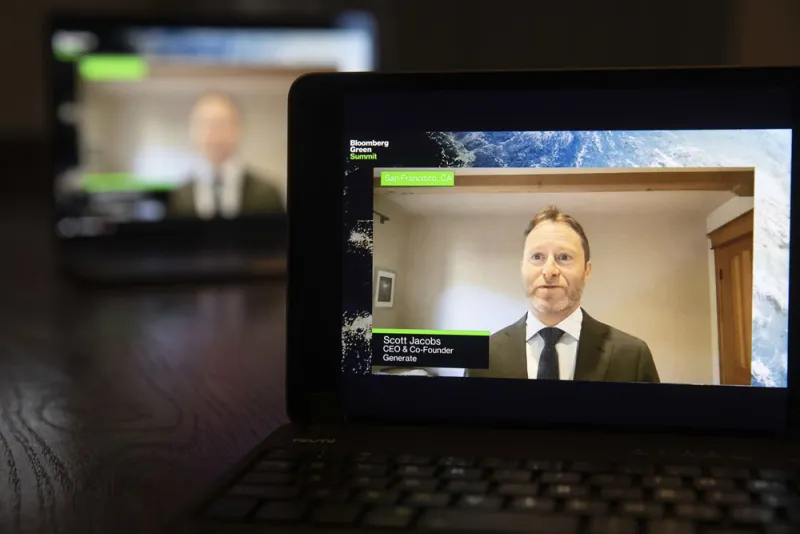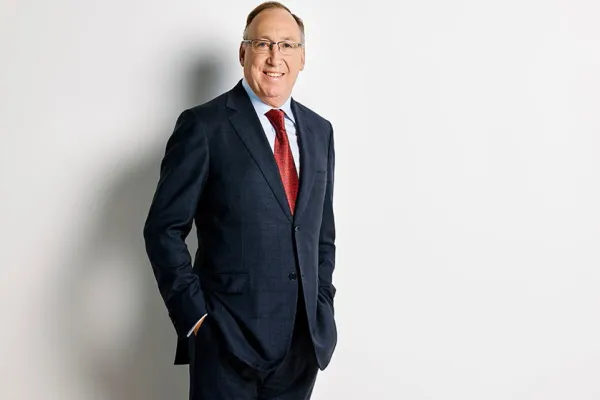Sustainable infrastructure investment firm Generate Capital has garnered $2 billion in investments from some of the world’s largest institutions.
The capital raise, expected to be announced Monday, was led by AustralianSuper and QIC and included Generate’s existing investors AP2 of Sweden, Railways Pension of the UK, and the Wellcome Trust. Generate also added new institutions to its investor slate, including Harbert Management Corporation, Aware Super, and CBRE Caledon, among others.
According to chief executive officer and co-founder Scott Jacobs, who spoke with Institutional Investor on Friday, the capital was raised in two months and involved “no flights and no bankers.” The fundraise was also oversubscribed, he said.
Generate is structured differently than the typical private investment firm. Rather than raising capital for funds that have specific vintage years and exit deadlines, Generate’s investors are buying permanent stakes of the company itself.
Generate uses this long-term capital to invest in infrastructure companies that it then operates and owns. Although the firm has a permanent capital structure, there are ways for investors to gain liquidity. The firm issues dividends and offers investors the opportunity to sell off their investments annually.
Asset owners are increasingly interested in this type of permanent investment structure, as it can align interests and drive down costs, Institutional Investor previously reported. Executive and research director at Stanford Global Projects Center Ashby Monk told II that “it makes incredible sense especially when you move into infrastructure assets. You don’t want to sell all of this stuff in seven years.”
Generate primarily invests in sustainable energy, transportation, and waste management, with an eye toward increasing its investments in water, agriculture, and smart cities, which includes investing in digital access and microgrids.
The company’s investments have made a real difference: During the winter storm that hit Texas in February, the company’s microgrids that powered businesses like Kroger stayed online, even as the state’s private energy provider, the Electric Reliability Council of Texas, went down, Jacobs said.
Jacobs said that the idea for Generate came to him during his time working as a consultant at McKinsey. He saw a disconnect between the small environmentally-friendly infrastructure companies that needed funding and the investors that couldn’t commit to tiny mandates that cost too much and wouldn’t move the needle for their larger portfolios.
These infrastructure companies needed longer commitments than investment funds could typically provide and required both funding and operators.
And so Jacobs, alongside chief investment officer Matan Friedman and Jigar Shah, who is now the Biden administration’s head of the Department of Energy’s Loan Programs Office, started Generate Capital in 2014.
“We decided that we are not going to take convention as our guide,” Jacobs said.
Generate has a flexible balance sheet, meaning that it can provide equity and debt funding. It also can operate the infrastructure companies and invest in small deals. Instead of launching new funds every time it seeks capital, Generate sells new shares of itself.
Early on, the fund garnered $50 million in investments, and it has only grown since. The company is opening offices in both New York and London, the latter of which aligns with its strategy of expanding its investments into Europe.
During the pandemic, Generate’s team nearly tripled — having started with 50 workers and ending up with 140 employees today. And the firm isn’t done raising capital yet. According to Jacobs, the firm’s chief financial officer has a whiteboard in his office that reads “ABRM” — always be raising money.







